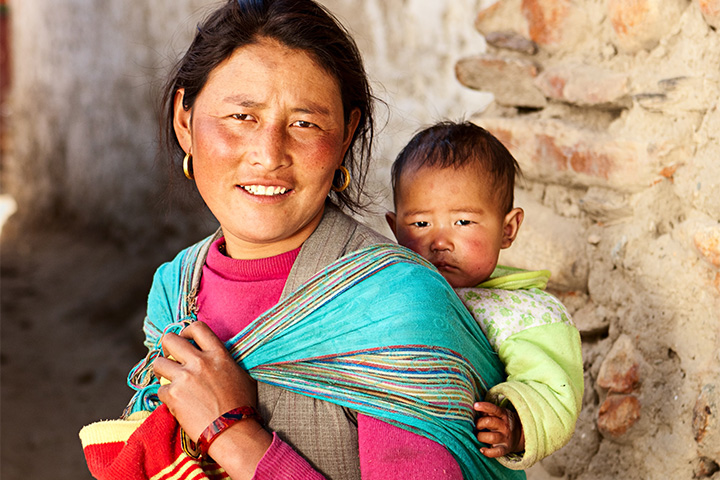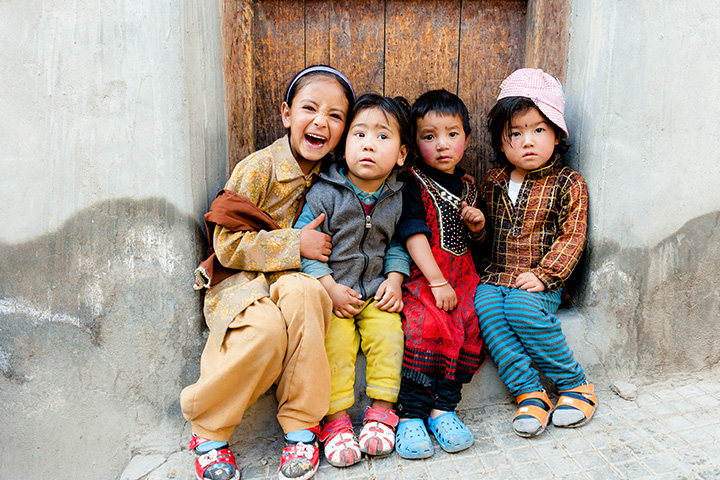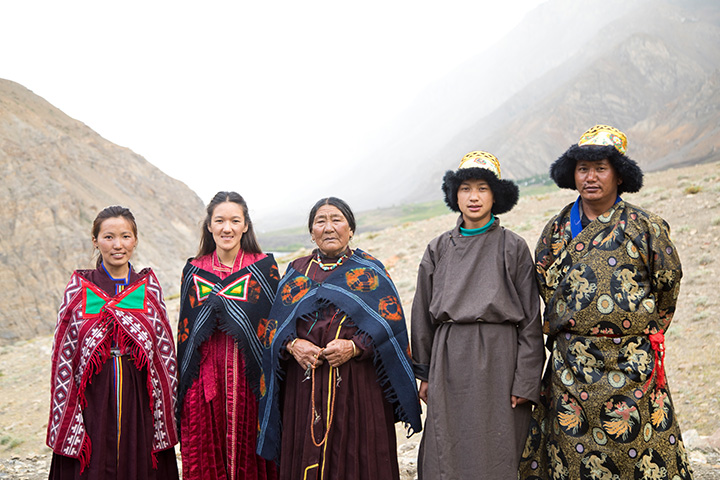
Image: iStock
It’s always fascinating to see how people from different cultures parent their children and how their ideals and beliefs impact the development of an individual. The Tibetan people are known for being wise, patient and having their own unique look at all facets of human life. And because of these strong values there is a special “Tibetan view” when it comes to the business of bringing up children. So how exactly do they raise children who are self-sufficient and respectful towards their elders and their community? Read on to know the 4 crucial stages of raising a child Tibetan style!
1. Stage 1: Before The Age Of 5
Image: IStock
According to the Tibetan upbringing system, any child below the age of 5 should be treated as a little king or a queen. This means that they shouldn’t be prohibited from doing anything and should not be punished. This is contradictory to many other parenting styles that focus on micromanaging their children when they are young and vulnerable. So, why exactly do the Tibetan people do the opposite?
They believe that at this young age, children are naturally curious, active and ready to explore. They believe in encouraging this behavior instead of stifling it. The child cannot employ logic as they have had no experiences to derive from, so they must be excused if they make any mistakes. Instead of prohibiting them from doing things that you consider dangerous, warn them away by acting scared. Emotions are the best way to communicate with your kids at this age. The key is to not be overprotective of your child as there is a risk that you may suppress their mental acuity, making them followers instead of teaching them how to reason.
2. Stage 2: From 5 To 10 Years Old
Image: IStock
在此期间父母转向对话ir child like a slave. They are mindful not to be cruel, but focus on assigning tasks and responsibilities to them. At this time in their life, intelligence and logical thinking are developing and the base of their future personality is forming. So parents set different goals for their kids and explain the consequences of not reaching these goals. This way, children slowly start to take responsibility for their actions. Parents are not afraid to give their kids many tasks to complete as they know that they are ready to learn. It is important to shift from this king or queen to slave mentality in order for the child to grow as a self-sufficient individual who contributes to society.
3. Stage 3: From 10 To 15 Years Old
Image: IStock
This is the period where you start to treat your child as your equal. Even though the parent has more life experience and knowledge, your child must be able to talk to you and share their opinions with you. Your task as a parent is to help them with this. Ask them for advice and encourage their independence.
Similarly, instead of enforcing rigid rules, advise your child when they come to you with problems. If you prohibit a lot of things, you will worsen your relationship and your child might put themselves in a dangerous situation. And if you are overprotective, they will grow up insecure and dependent on someone else’s opinion. Remember, this stage is all about fostering your child’s independent thought process.
4. Stage 4: Age 15 And Older
Image: IStock
By this time, the personality of your child has been fully formed. This means that the importance has now been shifted to being respectful of them as individuals. Tibetans believe that although you can support and advise your children, it is too late to teach them anything after the age of 15. All the values, beliefs and ideals that you have wanted to pass onto them have been done. It is now their choice to determine how much influence it has over them.
Your child is mature enough to know right from wrong and make decisions keeping both responsibilities and consequences in mind. In this period, parents will see the result of their actions. Your child has finally become a self sufficient, independent individual who respects their parents and everyone else. A true member of Tibetan society!
There is so much we can learn from the Tibetan people in terms of parenting and raising confident children who contribute to their community. Would you use some of their ideals and this 4 stage process to bring up your child? What are the Tibetan values that you’d like to incorporate into your own parenting style? Let us know in the comments section!

















